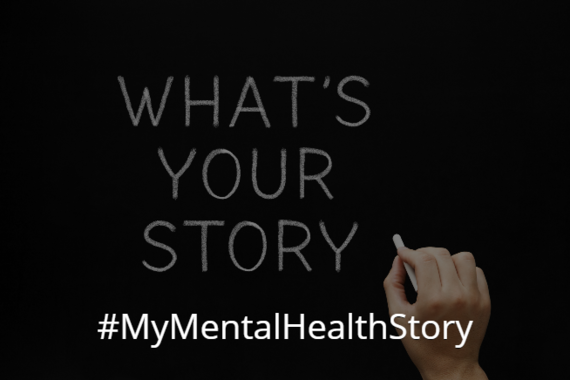It has been more than a year since Virginia State Senator Creigh Deeds was stabbed by his son Gus who then committed suicide. Gus had bipolor disorder and like so many other parents, Senator Deeds had done everything he could to help his son. But Deeds encountered a mental health system ill-equipped to avoid this tragedy. This ending has become too familiar and when hearing stories like this, the myth persists that people with mental illness are violent when, in fact, they are more likely to be victims of violence.
Although we are saturated with everyone divulging their personal struggles, hearing these testimonials is necessary. Tragic stories, like Creigh Deed's, sends a message of "never again should what happen to me, happen to you." We also need the hopeful stories to fight stigma, inspire us and educate that mental health disorders can happen to anyone regardless age, race or class. This continual normalization keeps up with our short attention spans and maintains the pressure needed to create a better mental health system.
I am always in awe of the bravery it takes for a person to tell their story. I can't imagine how hard it was for Creigh Deeds to relive this time in his life for this Washington Post article. When I worked in various mental health advocacy organizations I heard these tales frequently. Thinking back, every single story was important and shaped the urgency of my work.
The survivor stories were gritty and made me believe we could overcome mental illness. While the accounts of personal pain and treatment roadblocks people endured made me realize how far we had to go in solving many problems. The sharing is done in the spirit of optimism. I notice too, the stories themselves take on a life of their own in the way they were retold and shared.
There's proof this approach works, and it's evident in some of the progress of the last 15 years. We've enjoyed victories along the way, such as the passage of mental health parity, and better awareness but we still have a long way to go to ovecome this vexing problem. Access issues remain with either a lack of adequate health insurance coverage or none at all. The availability of qualified mental health professionals is still pressing and our fragmented mental health system is stretched so thin it makes it impossible to catch everyone from falling through the cracks.
I know firsthand while earning my Master of Social Work degree at Columbia University, there are many people who have dedicated themselves to helping others. They consider the social work profession a calling and feel passionate about improving services, helping people and changing the world. They also almost always have a story of their own and personal reasons for wanting to do this work.
When it came time to write my book, The Pornographer's Daughter , I knew my mother's suicide attempt and my own times of depression needed to be shared honestly. This aspect of my book was just as important as my family's experience when my father distributed the porn classic Deep Throat and his subsequent federal indictment.
I consider myself one of the lucky ones. My mother survived a terrible dark period when she downed a bottle of Nembutal and landed in a psychiatric hospital. My family had the luxury of affording private hospitalization and counseling when my mother needed it which many families do not have this option. I am proud to share my story too and join the collective of those who bravely shared theirs before me.
Your mental health story is so important, tell and share it in my storytelling campaign #MyMentalHealthStory. Your story can make a big difference to someone struggling right now. It can also inspire others to seek treatment and to advocate for the changes needed to improve today's mental health system.
When someone shares their story, reach out and express to them that they matter (#YouMatter) and continue to push that we need to treat and talk about mental health disorders before it's too late (#b4stage4).
To join and kick-off this year round storytelling campaign you can take the following steps:
- Share your story on social media and on your blog using the hashtag #MyMentalHealthStory.
- Provide a link to your blog post in the comment section of here or my blog. Other partners will join this campaign too. Watch the University of Southern California School of Social Work blog for their post.
- Submit to NAMI's You Are Not Alone campaign on Tumblr and use hashtag #MyMentalHealthStory.
- Every Friday, I'll select a mental health story of the week on Twitter @porndaughter and Facebook to highlight the many poignant stories out there.
Need help? In the U.S., call 1-800-273-8255 for the National Suicide Prevention Lifeline.

